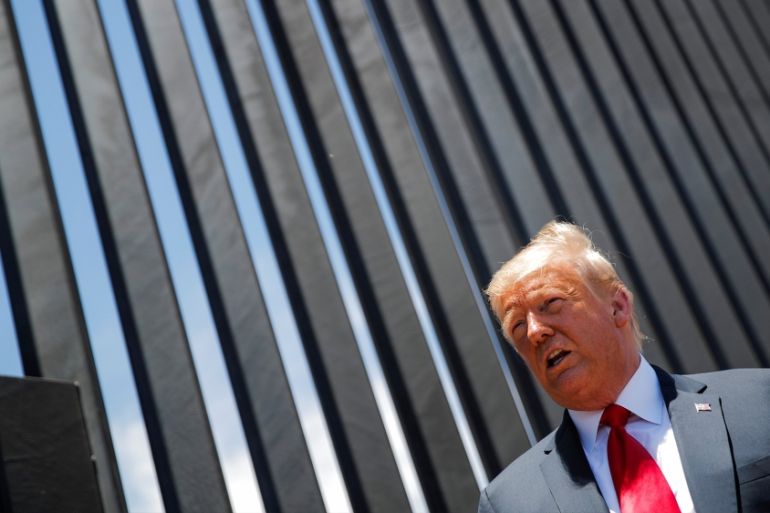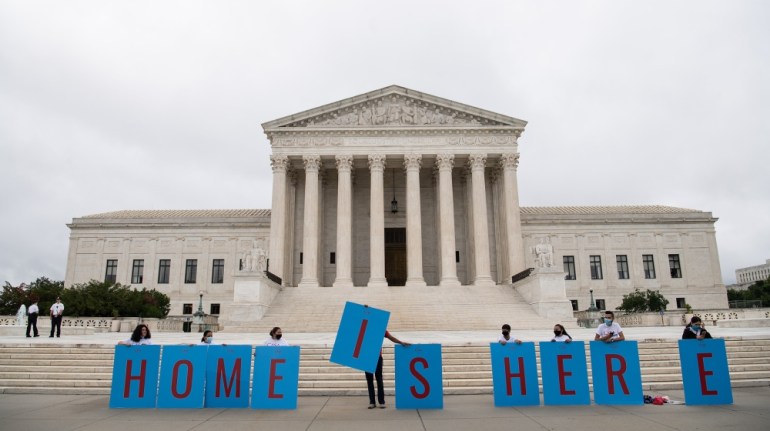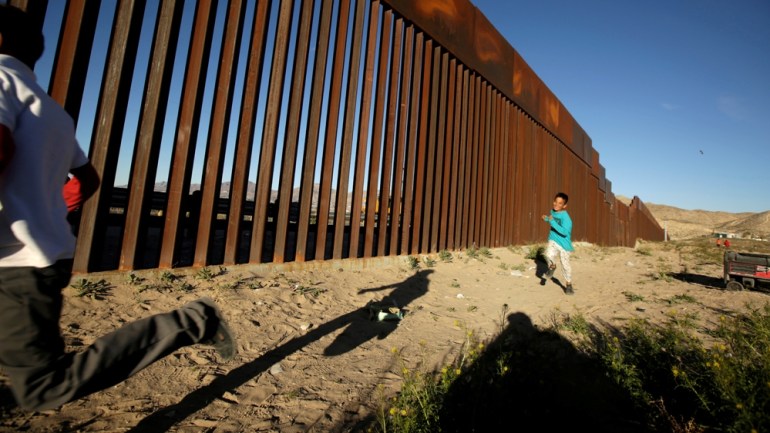US Supreme Court to hear two cases on Trump immigration policy
US high court to determine legality of ‘Remain in Mexico’ and funding for Trump’s border wall in 2021.

The Supreme Court on Monday agreed to hear two cases involving Trump administration policies at the US-Mexico border: One about a policy that makes asylum seekers wait in Mexico for US court hearings and a second about the administration’s use of money to fund the border wall.
One case will deal with the Trump administration policy known informally as “Remain in Mexico”, which began in January 2019.
Keep reading
list of 4 itemsTrump will not testify in New York hush-money trial as defence rests
Cohen admits to stealing and other takeaways from day 19 of Trump’s trial
Cohen faces more cross-examination as Trump’s trial enters final stretch
It became a key pillar of the administration’s response to an unprecedented surge of asylum-seeking families from Central American countries at the border, drawing criticism for having people wait in highly dangerous cities on the Mexican side of the border.
Lower courts found that the policy is probably illegal. But earlier this year, the Supreme Court stepped in to allow the policy to remain in effect while a lawsuit challenging it plays out in the courts.
More than 60,000 asylum seekers were returned to Mexico under the policy. The Justice Department estimated in late February there were 25,000 people still waiting in Mexico for hearings in US courts. Those hearings were suspended because of the coronavirus pandemic.

The other case will consider the legality of the president’s use of funds for the US-Mexico border wall. These funds were selected for use after Congress refused to appropriate money he sought for the wall and shift money already provided by legislators for other purposes.
The Justice Department appealed a lower court’s June 26 decision that Trump’s administration lacked the authority to shift the military funds towards the border project because the so-called Appropriations Clause of the US Constitution exclusively grants the power of the purse to Congress.
“We look forward to making the same case before the Supreme Court and finally putting a stop to the administration’s unconstitutional power grab,” said Dror Ladin, a lawyer at the American Civil Liberties Union, which brought the case on behalf of other advocacy groups.
BREAKING: The Supreme Court announced it will hear arguments in a challenge to the Trump administration's use of $2.5 billion for border wall construction that Congress explicitly denied.
— ACLU (@ACLU) October 19, 2020
A Justice Department spokeswoman declined to comment.
The border wall was a central 2016 campaign promise by Trump, a Republican seeking re-election on November 3.
Trump has said the wall is needed to curb illegal immigration and drug trafficking across the southern border.
Democrats have called the wall immoral, ineffective and expensive. Trump promised during the 2016 presidential race Mexico would pay for the wall. Mexico refused.
In 2019, Trump’s administration redirected $2.5bn from military counter-narcotics programmes for border wall construction in California, New Mexico and Arizona.
The Southern Border Communities Coalition, a group advocating for people living in border areas, joined the Sierra Club environmental group in suing to try to block Trump’s action. The challengers have said the wall would be disruptive to the environment in part because it could worsen flooding problems and harm wildlife.

US District Judge Haywood Gilliam in Oakland, California, ruled last year the administration’s use of the Pentagon funds for a border wall was unlawful and issued an injunction blocking the transfer of funds.
The Supreme Court by a 5-4 vote last year lifted Gilliam’s injunction, allowing the project to move forward while the litigation continued. The San Francisco-based 9th US Court of Appeals subsequently ruled 2-1 on June 26 that Trump’s diversion of funds was unlawful because he lacked constitutional authority to authorise such a transfer.
Dissenting from a July order that allowed construction to continue, Justice Stephen Breyer wrote the court’s action, “I fear, may operate, in effect, as a final judgment”.
Aside from the $2.5bn in Defense Department money Trump identified, he also planned to use $3.6bn from military construction funds and $600m from the Treasury Department’s asset forfeiture fund.
The funding transfers have enabled the administration to build more than 160km (100 miles) of fencing in areas identified by the Department of Homeland Security as drug-smuggling corridors, Justice Department lawyers said in a court filing.
The justices will not hear either new case until 2021, and the outcome of the presidential election could make the cases go away, or at least reduce their significance. If Democrat Joe Biden wins the White House, he has pledged to end many of Trump’s immigration policies.